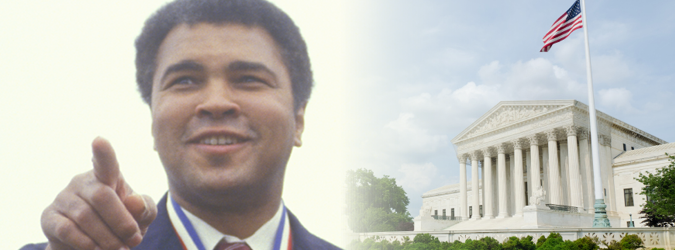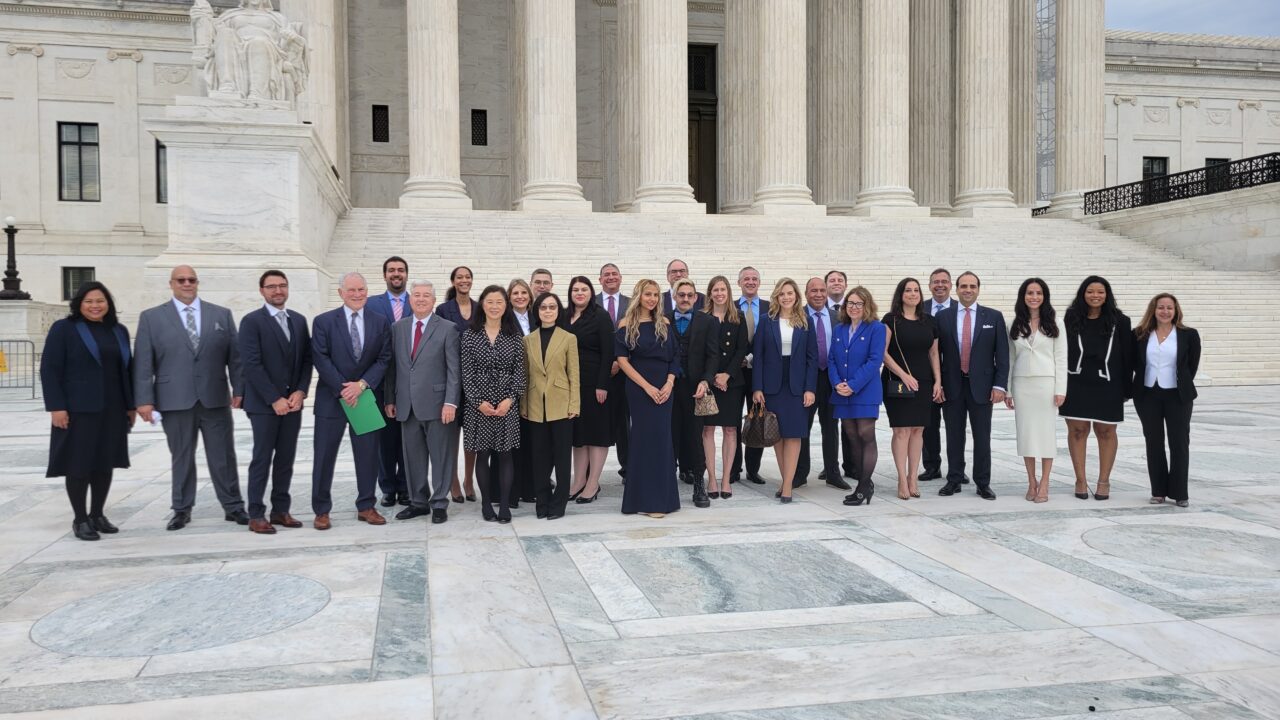Understanding the Impact of the Muhammad Ali Case
9.24.2024

There is no denying the impact Muhammad Ali had on the sport of boxing, yet a recent essay by a past president of the New York State Bar Association, T. Andrew Brown, details how his career and his willingness to hold firm to his beliefs changed much more than a sport.
Brown also provides a look at how maneuvering behind the scenes at the Supreme Court changed the eventual outcome of his case Clay v. United States. Recently, he sat down with “Miranda Warnings” host David Miranda to talk about his research and the impact of the 1971 U.S. Supreme Court case.
“Ali changed the fight game, and he impacted life as we know it today, race relations, respect for the individual,” Brown said. “With respect to draftees, he limited the ability of government to mandate who was eligible for the draft and who would go to war.”
You can’t discuss the case of Clay v. United States without first understanding the backlash that Ali faced following his announcement of his name change and admission to the Nation of Islam, Brown argues. As an Olympic gold medalist and boxing champion, he enjoyed praise from both white and black America. In his essay, Brown wrote:
Many Americans were outspokenly angry with the idea that the heavyweight champion would be anti-Christian and a part of what was then seen as a radical Black movement. Not surprisingly, his parents also hated the name change. Many journalists, fans, and even boxers refused to call him by his adopted name, stubbornly referring to him as Cassius Clay.
Ali’s legal challenge of the draft on religious grounds led to a criminal conviction, labeling him a draft dodger. Following the conviction, he was stripped of his title and boxing license, which dramatically altered his life and career during his prime fighting years.
The case of Clay v. United States challenging the draft on religious grounds was finally heard in 1971. It centered around the sincerity of religious belief as a conscientious objector. Brown detailed how the original decision was 5-3 with Justice Thurgood Marshall recusing himself from the case. Justice Harlan was assigned to write the majority decision.
“It’s an interesting backstory, he [Justice Harlan] assigned it to his law clerk who was more supporting of the conscientious objector basis of not going to war. He read Muslim literature about the faith and the Nation of Islam and he was not comfortable with the planned [5-3] ruling. The clerk discussed his concerns with Harlan who became more invested and changed his position and said ‘wait a minute’ the government didn’t prove its initial case,” Brown explained. “Muhammad Ali did qualify as a conscientious objector and changed his position. Then it became a matter of lobbying within the court and eventually it was a unanimous 8-0 decision. They found evidence to support Ali’s case, and found that the government had misrepresented the Nation of Islam doctrine.”
The majority decision was based on a technical reason to reverse the lower court ruling and decide in Ali’s favor. In his essay, Brown details how the pressure to make a unanimous ruling fell to Chief Justice Warren Burger:
This was a time of civil unrest throughout the country. With all seven of the other justices voting to overturn Ali’s conviction, Chief Justice Burger reportedly feared he would be viewed as a racist, and changed his vote, making it a unanimous decision to overturn the previous conviction. Muhammad Ali was now a free man.
In addition to upholding religious freedom, Brown contends the case made a significant impact on civil rights.
“Back then the government could go into court and win cases just because it was the government, especially against a poor black kid who everyone had begun to hate,” said Brown. “The government could make an example of him. No one questioned the Department of Justice. In the end you have this law clerk who convinces Justice Harlan, who in turn, convinces the rest of the justices. It really is a remarkable case, if you look at it, study it, and go behind the Supreme Court wall. How they went from a vote to uphold to an 8-0 unanimous decision to reverse.”
“He gave up the prime of his career for his religion, he put it on the line for his beliefs. These are just some of the reasons why he is considered the greatest sports figure of our time.”
Listen to the entire conversation with T. Andrew Brown, including a look at Ali’s early years in Louisville.






